Fixing in action
Suspicious state prison tender: Special vehicles of a company from Ljubuški drawn down to the millimetre
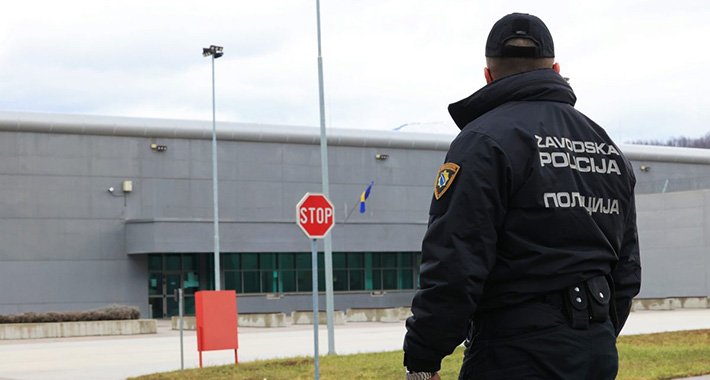
Three special medical and cargo vehicles, as well as vehicles for prisoners, will be delivered by the company MRM export-import Ljubuški, which is affiliated with HDZ. They were the only bidder who submitted an offer whose value was only 25 KM below the estimated value.
The Institute for the Execution of Criminal Sanctions, Detention and Other Measures of BiH, that is, colloquially speaking, the state prison, which is located in Vojkovići near Sarajevo, concluded a contract in mid-December 2022 with the company MRM export-import Ljubuški on the procurement of a special ambulance, then a special vehicle for transporting prisoners, and a cargo vehicle with a total value of slightly less than 213,675 KM (without VAT).
Written by: A. DUČIĆ/Fokus.ba
The documentation obtained by Fokus.ba indicates that it is a rigged tender. Namely, the technical specifications of the vehicles in the tender documentation obtained by our portal are limited to the millimetre, which points to the preferred vehicle models.
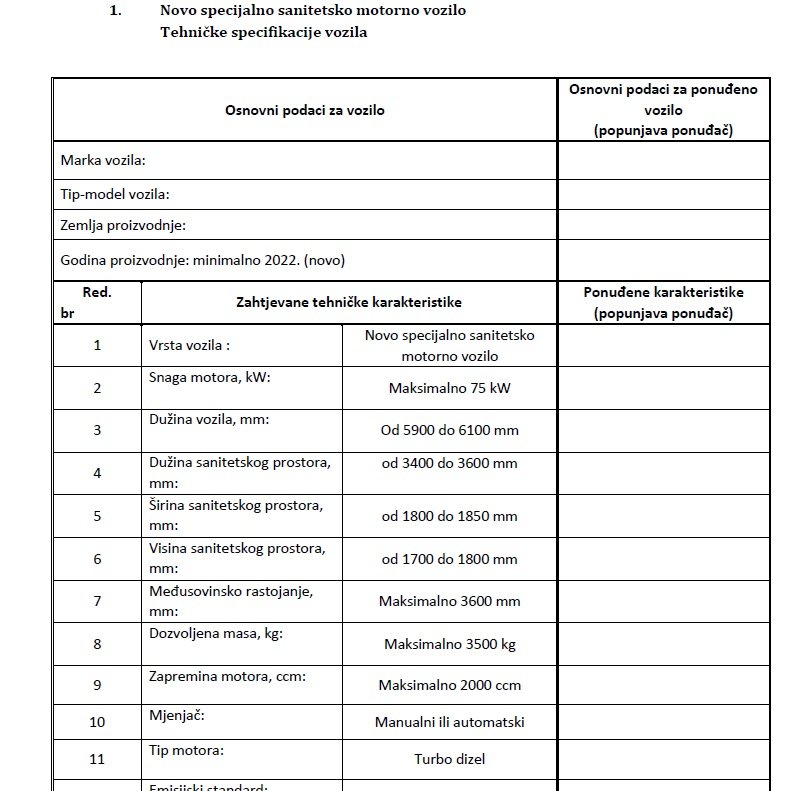
Detalj iz tenderske dokumentacije o specifikaciji za vozila
Thus, according to the tender documentation, the special medical motor vehicle had to have a maximum engine power of 75 kW, the length of the vehicle must be between 5,900 and 6,100 millimetres, and the medical space between 3,400 and 3,600 millimetres. The width and height of the sanitary area and engine volume of 2000 ccm are specified in millimetres.
Also, it is stipulated that the engine type must be a turbodiesel, and the colour must be white. The interior space should be lined with polyester linings with a combination of ABS plastic with blue decorative strips. In the specification for this vehicle, other characteristics are specified with surgical precision, which (you don't need to be an expert to conclude) targets only one type of vehicle.
According to the same matrix, with millimetre precision, the vehicles for transporting prisoners, as well as the special cargo vehicle, which is the subject of procurement, are described. Apparently, when it comes to medical vehicles, VW vehicles of which MRM export-import is a representative are purchased and have already been delivered to certain institutions or institutions.
Thus, in October 2022, the Prime Minister of HNK Nevenko Herceg (HDZBiH) signed a contract with the company MRM on the purchase of five VW Crafter 2.0 TDI ambulances in the total amount of 730,665 KM.
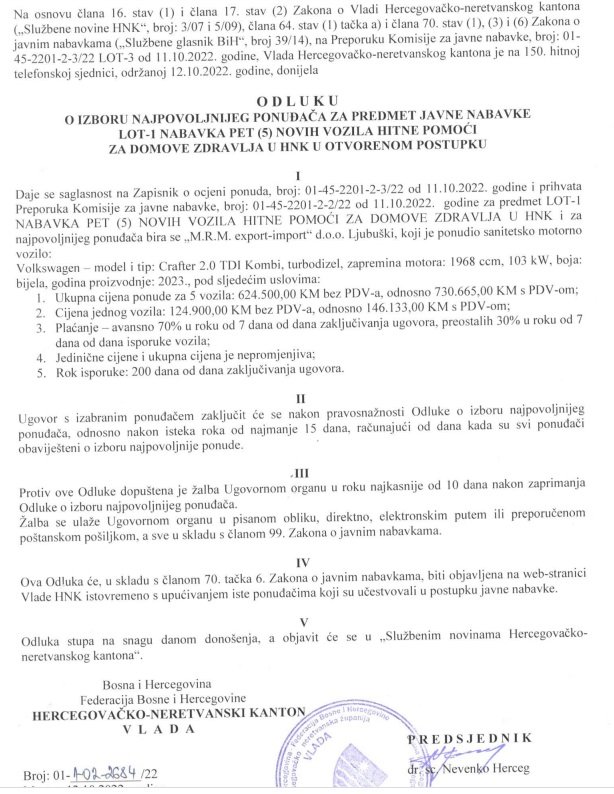
Faksimil odluke o nabavci vozila Vlade HNK
When it comes to the tender for the state prison, it is interesting that only one bid was submitted, namely the one from the company MRM from Ljubuški, which was selected, and the value of the bid was only 25 KM below the estimate. Namely, in the procurement notification the total value of the contract without VAT is estimated at 213,675 KM, and in the contract award notification it is stated that the final total value of the contract without VAT is 213,650 KM.
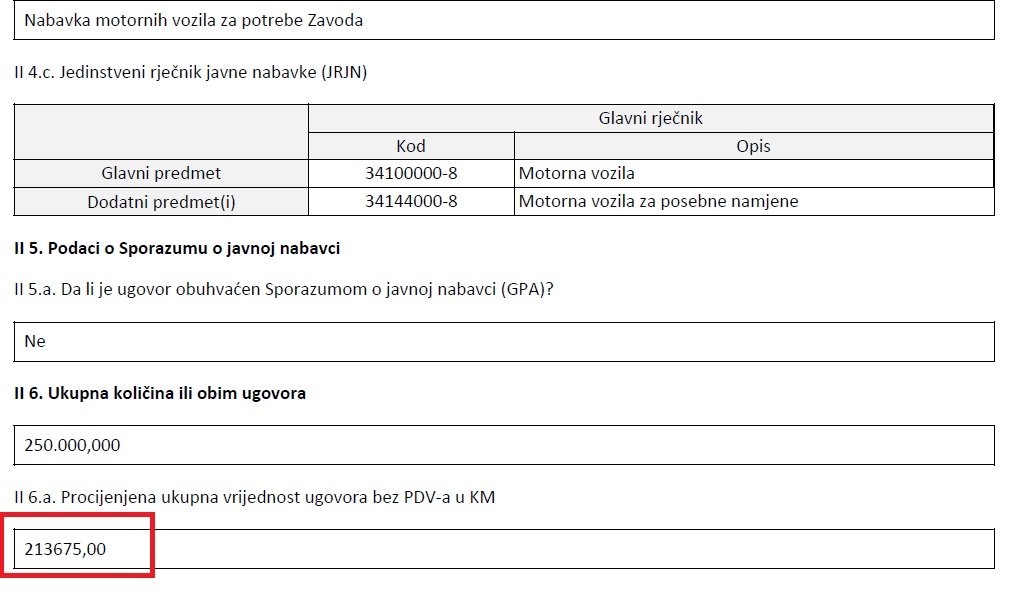
Procijenjena vrijednost nabavke
All this information shows that there is a high probability that it is a matter of a previous agreement on the supply of these vehicles, with the fact that there is also something called collusion on the market. It is an agreement between bidders not to “interfere” in each other's business.
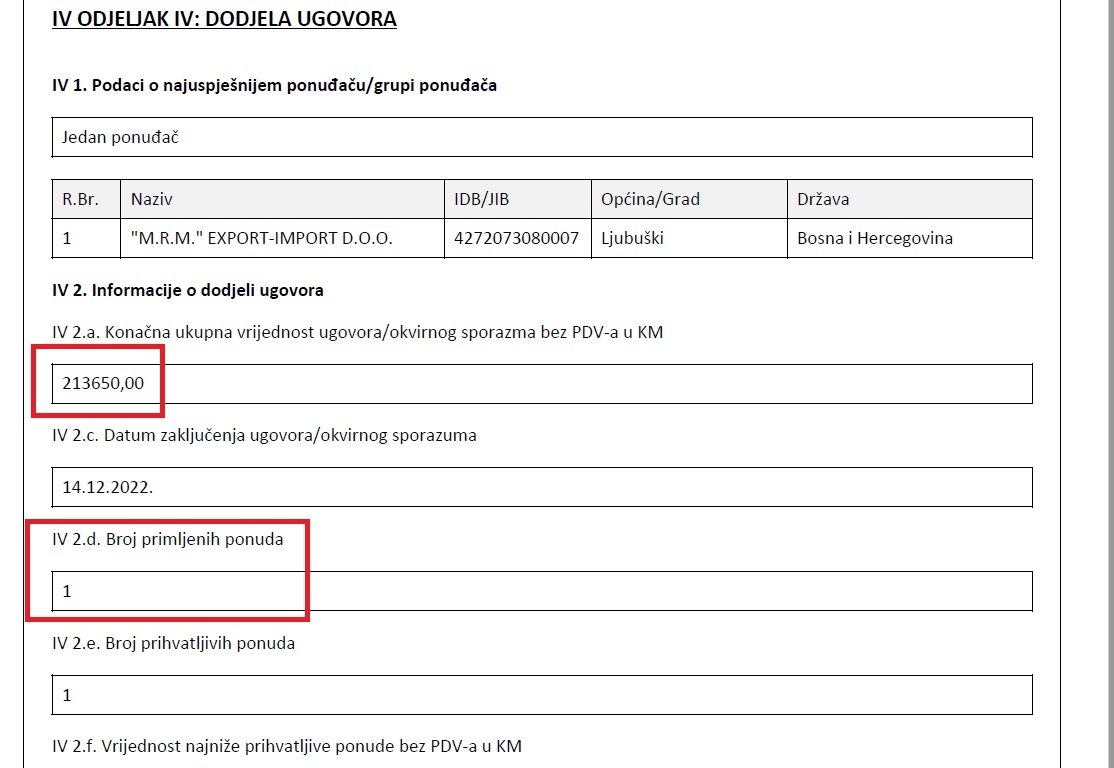
Jedna ponuda i konačna vrijednost ugovora
In response to an inquiry by Fokus.ba, the Institute for the Execution of Criminal Sanctions, Detention and Other Measures of BiH said that the procedure was carried out in accordance with the Law on Public Procurement of BiH.
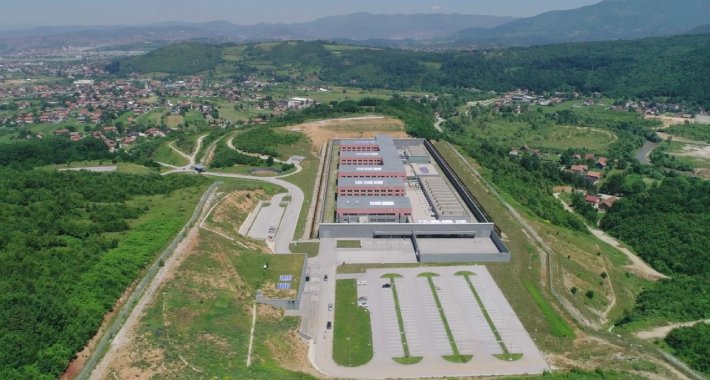
Iz Zavoda kažu – sve je po zakonu
– The technical specification of the procurement in question enabled an equal and non-discriminatory approach to bidding. The Public Procurement Commission reviewed the received bids and evaluated the bidder's qualifications, in accordance with the criteria from the tender documentation, and found that there were no irregularities, and the selected bidder was selected using the “lowest price” criterion. When taking over the tender documentation, all bidders had an insight into the estimated value of the procurement in question and, in accordance with it, could submit their bid – there was a comment from the Institute on the extremely limited technical specification of the tender as well as the submission of only one bid.
It is interesting, however, that the decision on the selection of the most favourable bidder for this tender, as well as the decision to accept the offer, as was done for many other tenders, was not published on the Institute's website.
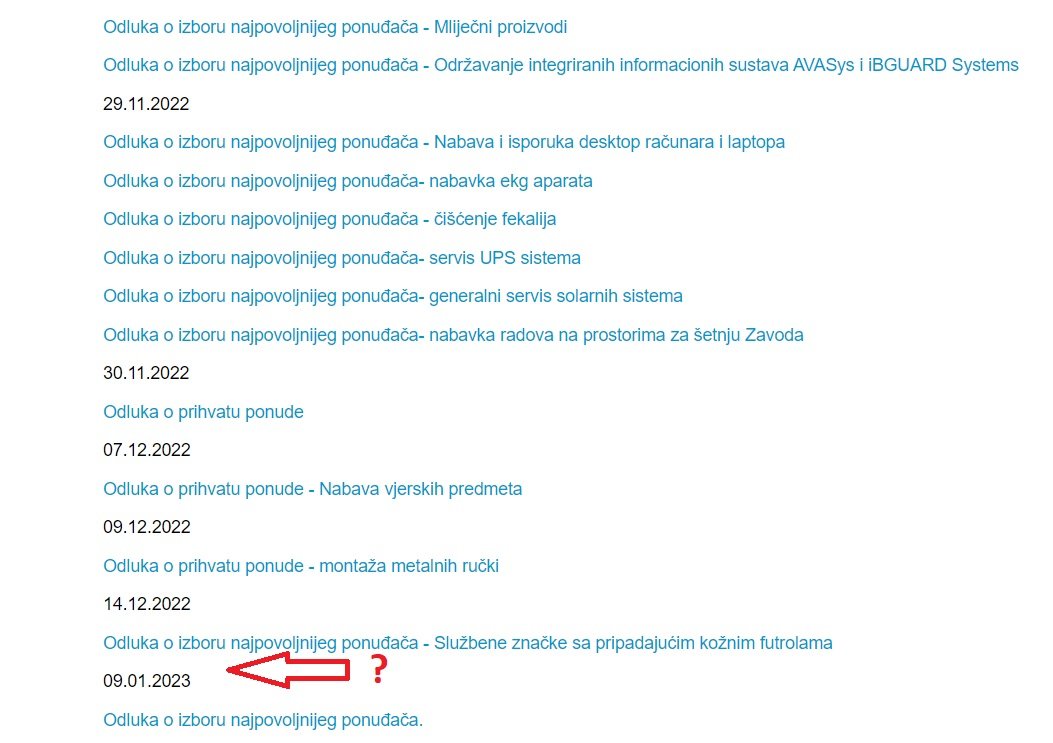
Na stranici Državnog zatvora nije objavljena odluka o nabavci M.R.M.
However, this is not the only Institute tender where MRM won. Last year, they won two tenders for the service of official vehicles. The institute has signed two direct agreements with the MRM company for work of 5,959 KM and 2,690 KM (without VAT). In 2020, they also won two tenders from the Institute. It is a tender for the purchase of passenger vehicles worth 98,188 KM, followed by a tender for vehicle equipment in the amount of 1,316 KM. It should be emphasized that the Institute for the Execution of Criminal Sanctions, Detention and Other Measures of BiH was officially opened in July 2020.
By the way, MRM export-import Ljubuški, a company that has long been associated with HDZ BiH in the public eye, is one of the record holders in tenders announced by state institutions or companies owned by state capital.
According to the data from the Public Procurement Portal, this company from Ljubuški, when it comes to public procurement, has concluded a total of 1,519 contracts worth 54.2 million KM with the public sector in BiH in the past few years!
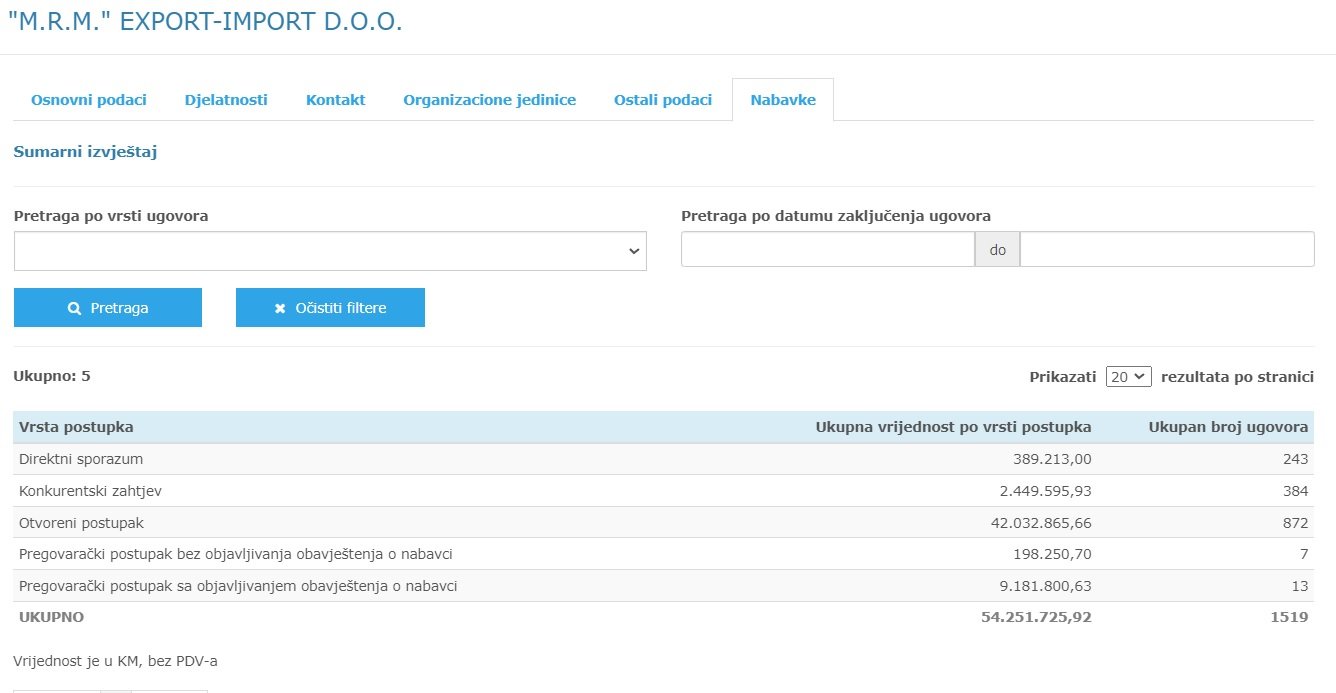
S javnim sektorom u BiH sklopili ukupno 1519 ugovora vrijednih 54,2 miliona KM
The names of the founders of MRM export Ljubuški can also be found in the court register of business entities. They are Emilija Bilić, Manuela Doko, and Miroslav Rupčić, with a total capital of 1,592,000 KM.
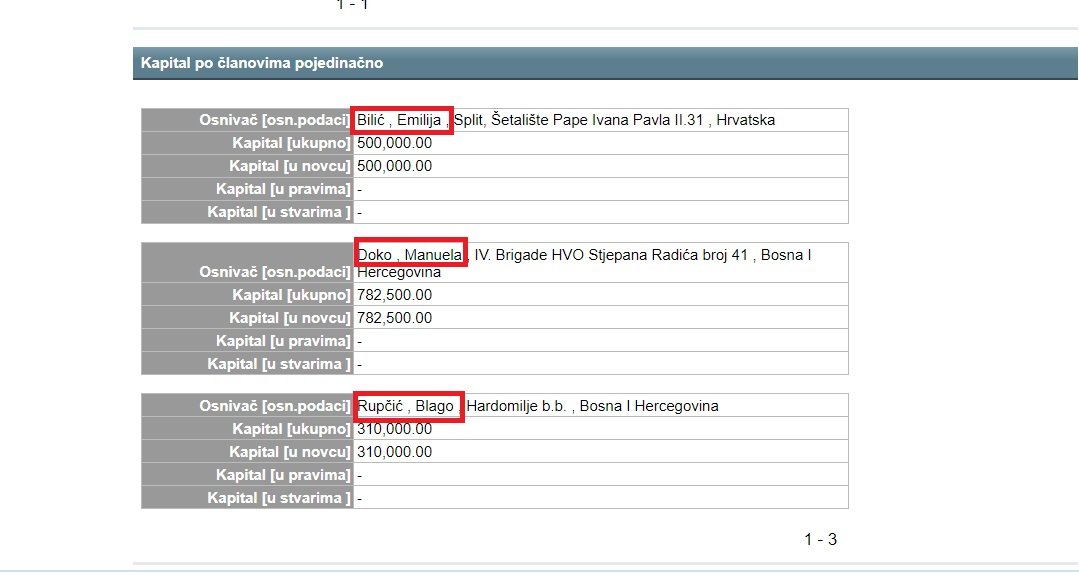
Faksimil sudskog registra privrednih subjekata o osnivačima MRM Export
On October 15, 2004, the Council of the Court of Bosnia and Herzegovina found Rupčić guilty of abuse of office and unconscionable work in the service, crimes he committed as an assistant to the Federal Minister of Finance and director of a branch of Hercegovačka banka, and sentenced him to a single prison term of five and a half years. He then signed a plea agreement. In 2001, the international community introduced forced administration in Hercegovačka Bank due to suspicions that the financial engine of the so-called Croatian self-government. Other prominent HDZ members, Ante Jelavić and Miroslav Prce, were also convicted at the time.
According to the writings of Žurnal, Rupčić admitted, among other things, that the current president of HDZ BiH Dragan Čović was gifted a Golf Volkswagen car, worth 56,900 KM, which was illegally paid from the account of the failed Herzegovina insurance company MRM
Also, Rupčić was one of Čović's witnesses during the court process regarding the dubious privatization of Eronet. In April 2013, the Supreme Court of FBiH acquitted Čović and six other defendants in this case.
In the past year, MRM export-import Ljubuški, when it comes only to the delivery of passenger, then medical and other special vehicles, signed contracts with various institutions at all levels of BiH with a total value of 4.5 million KM (without VAT).
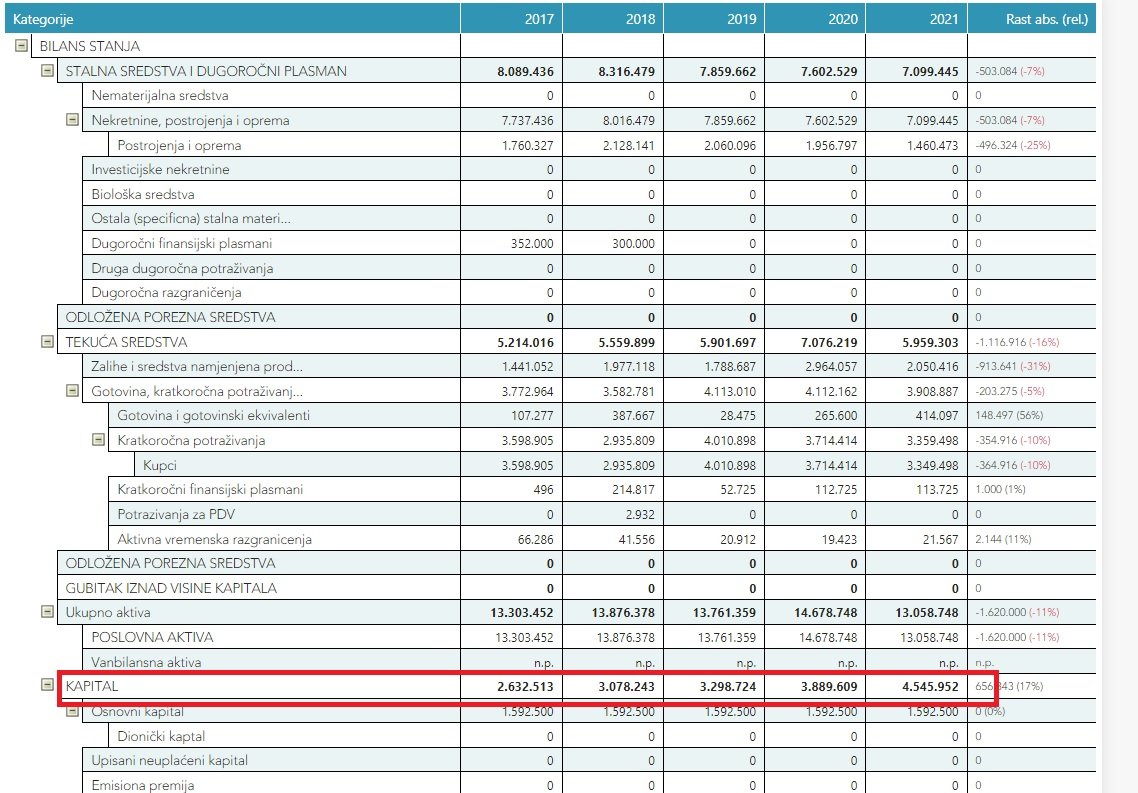
Finansijski podaci MRM Export import Ljubuški
The vehicles were delivered, among others, to the Health Center Stolac, the City of Čapljina, the City of Mostar, the Health Center Posušje, the Health Center Ljubuški, the University of Mostar, the Institute of Health Insurance ZHK, then the FBiH Highways, Elektroprivreda HZHB, the Health Center Rama, the Government of HNK, and the University Clinical Hospital Mostar. So, mainly where HDZ BiH cadres manage.
According to the financial data on operations collected by the analytical and credit rating company Bisnode, the capital of the company MRM export-import Ljubuški, for example, in the period from 2017 to the end of 2021, constantly grew, from 2.6 to 4.5 million KM, which was its value at the beginning of 2022. The total income of this company in 2017 was 25.9 million KM, and at the end of 2021, it was 27.5 million KM.
We also sent the inquiry to the official e-mail address of the company MRM export-import Ljubuški, but we did not receive an answer until the end of this text. In case we get it, we will publish it later.
On the other hand, the Institute for the Execution of Criminal Sanctions, Detention and Other Measures of Bosnia and Herzegovina, headed by SNSD staff member Siniša Perković, for only two and a half years, during his mandate, according to the information from the Public Procurement Portal, spent more than five million KM on various tenders.
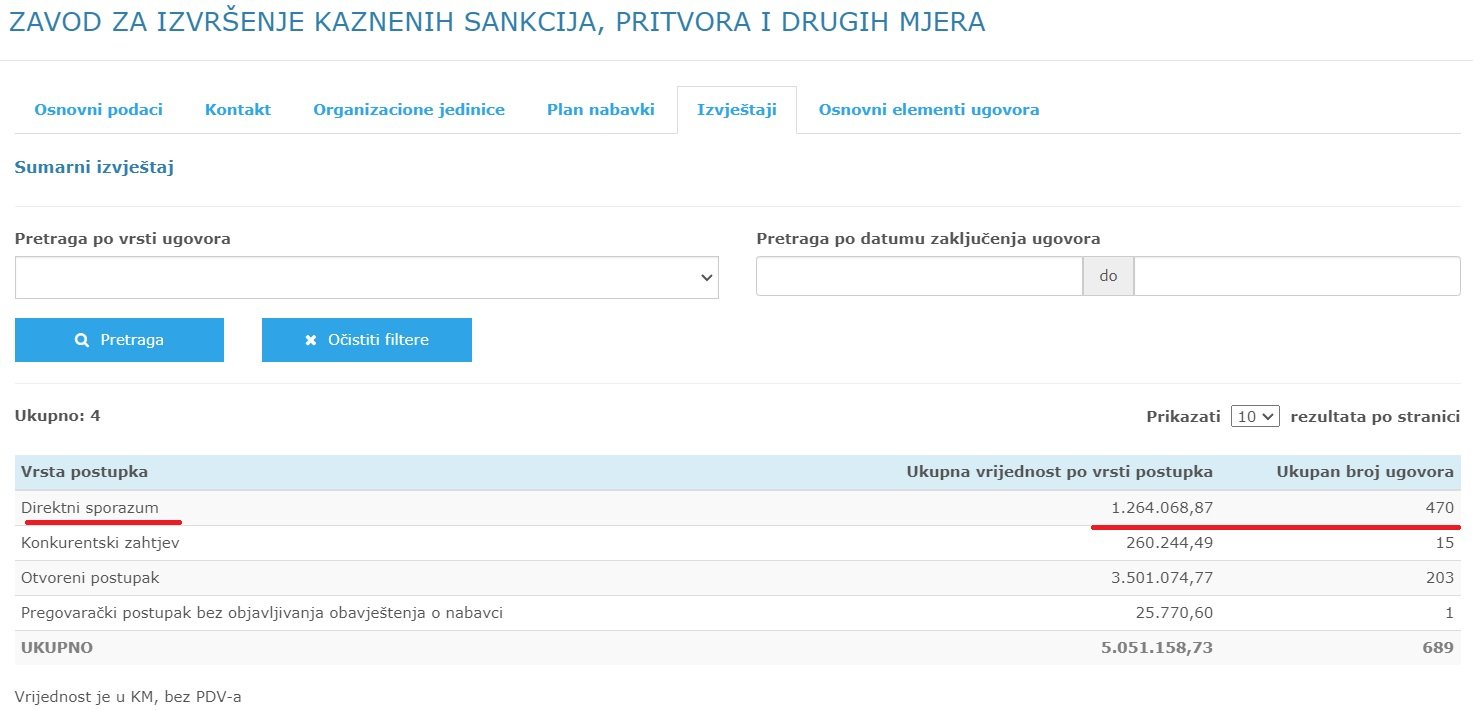
Podaci o tenderima Zavoda s Portala javnih nabavki
He concluded most of the contracts through direct agreements, which are the most non-transparent procedures in public procurement. He concluded as many as 470 such agreements. Otherwise, a direct agreement can be concluded if the value of the contract does not exceed the amount of 6,000 KM. Practice shows that it is most often concluded in such a way that the contracting authorities turn to only one bidder and conclude a contract directly with him, without the possibility of other companies even sending an offer. In addition, there is no possibility of inspecting the tender documentation, and the only important thing to know is the name of the procurement, the value of the contract and the company with which the contract was concluded.
We spoke with Slobodan Golubović, the editor of the aforementioned portal, about this procurement, which is the specialized portal for monitoring public procurement in BiH, Pratimotendere.ba, marked with a red flag, but also about the issue of tender fixing.
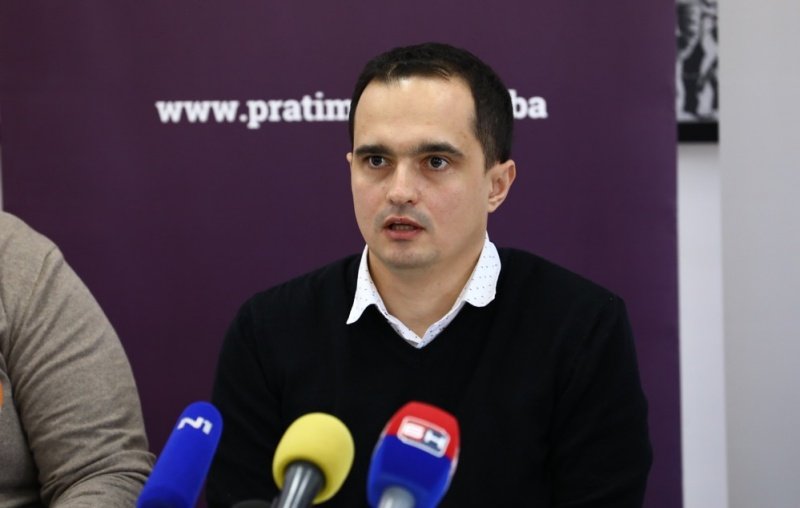
Golubović: Konkurencije uništena višedecenijskim koruptivnim aktivnostima
He points out that the practice of public procurement monitoring shows that contracting authorities, which are usually managed by politically appointed managers, ensure that companies like MRM or Prointer win tenders by eliminating the basic principles of public procurement, namely: transparency, equal treatment, non-discrimination, fair and active competition and the most efficient use of public funds, that is, the best value for money.
– It is not difficult to prove the connection between politics and winners, that is, the only participants in public procurement procedures. In addition, recently, an increasingly pronounced challenge is that there is no competition at all because it has been destroyed by decades of corrupt activities or, if there is some competition, prior agreements are made between the bidders themselves not to interfere with each other's already agreed deals (the so-called collusion ). Not even the best legal solution can foresee all the abuses that can come up in public procurement, so the only solution that would be adequate is for the prosecutors to start working on such cases – Golubović concluded.
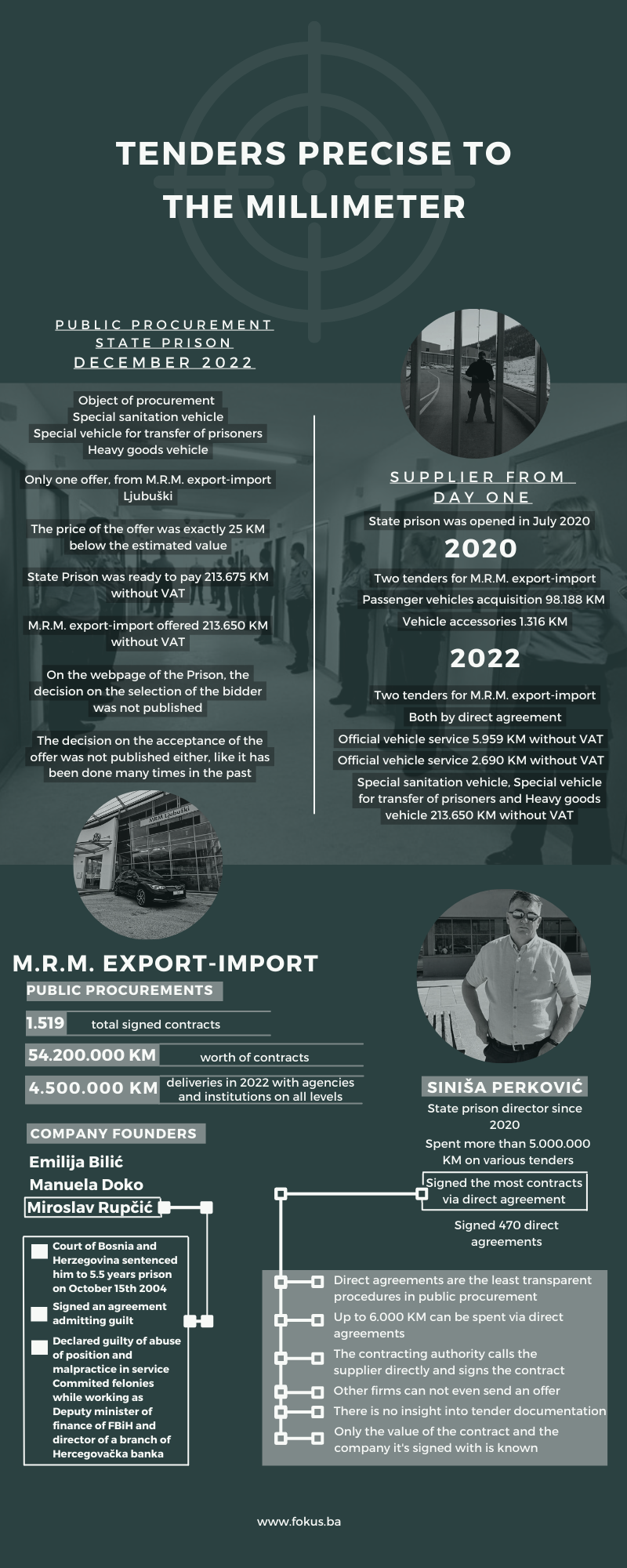









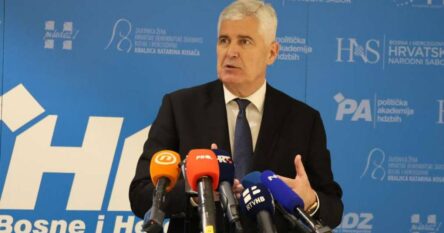


 Filmski obračun u Zagrebu, izrešetan automobil bh. registarskih oznaka
Filmski obračun u Zagrebu, izrešetan automobil bh. registarskih oznaka